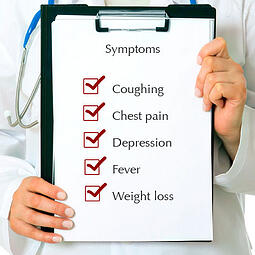Chronic obstructive pulmonary disease (COPD) is a gradual degenerative form of lung disease that is associated with increased breathlessness, frequent coughing, and tightness in the chest.
Because there are many misconceptions about COPD, it is important that patients and caregivers know the following facts about COPD.
Smoking is the #1 irritant and risk factor that causes COPD. COPD is most often diagnosed in people with a history of smoking.
Although not everyone who smokes gets COPD, majority of the people who have COPD have smoked.
With consistent smoking, the level in which the lung is damaged increases and within time becomes unable to function effectively.
It is advisable that patients quit smoking early because once the lungs get damaged; the damage is often irreversible.
COPD is not a death sentence. In the past, a diagnosis of COPD often meant a death sentence for the patients.
However today, many therapy options exist that prolong life and improve quality of life.
Some patients may also benefit from high-quality exercises, well-balanced diet, and starting and committing to a rehabilitation program.
Diet and exercise play a key role in treating COPD. Some COPD patients can benefit from exercises but it is essential to monitor how the exercises impact the lungs and the body.
Patients should get a pulse oximeter to monitor oxygen levels during workouts.
Appropriate diet plan is another necessity that improves overall health.
A proper diet should contain a lot of dark green vegetables, fruits, grains, nuts, dairy, and lean meats that provide all the essential vitamins and minerals everyone’s body needs.
COPD symptoms can be managed and maintained. Most patients usually feel concerned with COPD symptoms.
Thus, proper information about how to manage and treat symptoms of COPD is essential to improve quality of life.
An effective COPD treatment course consists of personalized routines for daily living.
These may include drug therapy, breathing techniques, which entail special exercises that target muscles critical to respiration and help raise blood oxygen saturation, and home and portable oxygen therapy.
A COPD diagnosis includes emphysema and/or chronic bronchitis. Chronic bronchitis, which is characterized by constant coughing from constrictions in the air way, diagnosis is typically the first stage in the development of COPD.
Emphysema, which describes shortness of breath resulting from damaged air sacs, generally follows closely behind.
However, you do not need to have both emphysema and chronic bronchitis to be diagnosed with COPD.
Lung irritants such as perfume, chemical based cleaners, dust, and air pollutants can cause exacerbations. Inhaling second hand smoke, air pollution, or chemical gases or dust particles from the surroundings can also contribute to COPD.
Severe or extensive contact with other lung irritants, such as organic cooking fuel, can also lead to COPD or exacerbate it.
There are ways to slow the progression of the disease. Although there is no cure for COPD, early treatment can reduce its progress and improve quality of life for some patients.
Chronic bronchitis can be treated with corticosteroids and bronchodilators, whereas emphysema requires supplemental oxygen to cover the insufficient lung capacity.
COPD patients frequently require continuous oxygen supply and therefore typically use portable oxygen concentrators (POCs).





